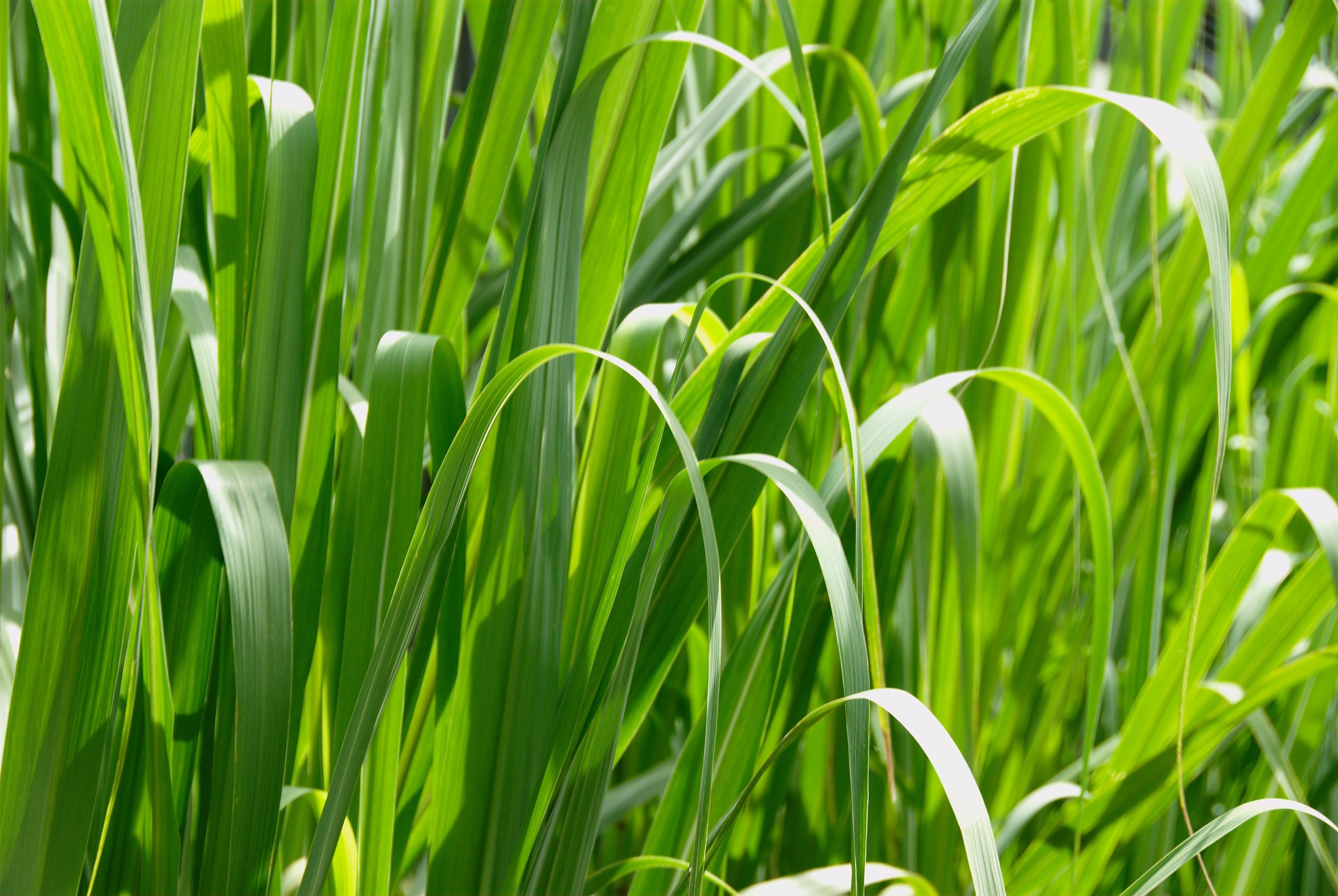Lemongrass

Lemongrass is used for treating digestive tract spasms, stomachache, high blood pressure, convulsions, pain, vomiting, cough, achy joints (rheumatism), fever, the common cold, and exhaustion. It is also used to kill germs and as a mild astringent.
Some people apply lemongrass and its essential oil directly to the skin for headache, stomachache, abdominal pain, and muscle pain.
By inhalation, the essential oil of lemongrass is used as aromatherapy for muscle pain.
Historical Use
Reports that lemon grass was being distilled for export as early as the 17th century in the Philippines. The first samples of the closely related citronella oil were displayed at the World’s Fair at London’s Crystal Palace in 1951. It is a favorite oil in India for hundreds of years and known locally as ‘choomana poolu’ which refers to the plant’s red grass stems.
In East India and Sri Lanka, where it is called “fever tea,” lemon grass leaves are combined with other herbs to treat fevers, irregular menstruation, diarrhea, and stomachaches. Lemon grass is one of the most popular herbs in Brazil and the Caribbean for nervous and digestive problems.
The Chinese use lemon grass in a similar fashion, to treat headaches, stomachaches, colds, and rheumatic pains. The essential oil is used straight in India to treat ringworm or in a paste with buttermilk to rub on ringworm and bruises. Studies show it does destroy many types of bacteria and fungi and is a deodorant. It may reduce blood pressure – a traditional Cuban use of the herb – and it contains five different constituents that inhibit blood coagulation.
Lemongrass is an aid for people who have trouble getting started in the morning. It is not only psychologically refreshing, but it also serves as a tonic for tightening weak connective tissue. The essential oil strengthens blood vessels and helps prevent varicose veins. It is beneficial for the treatment of sports injuries, like bruises and pulled ligaments. It may be used in an arnica tissue, diluted with water and applied as a cold compress or bandage.
Lemon grass produces one of the 10 – largest – selling essential oils in the world, with over 1500 tons produced annually. It is used as the natural starting point to produce the fragrance component citral. In East India, the oil is mixed with coconut oil to rub on lumbago, rheumatism, and painful nerve conditions. In the Caribbean, lemon grass baths ease soreness.
Preparation and Dosage
Traditional Uses: Take as a tea for fevers, coughs, colds, and as a pleasant tonic or beverage. Promotes perspiration and excretion of phlegm, and eases stomach cramps. Especially useful for children and infants. For adult fevers, boil 1 mashed root and 10 leaves in 3e cups of water for 10 minutes; drink very hot; go to bed and wrap up warmly. For childhood fevers, boil 10 leaves in 3 cups of water for 10 minutes; give child ½ cup 6 times daily and keep child warm. Soak mashed root in oil and rub on backache, muscle spasms and over forehead to relieve headaches.
RECIPES
Headache Pillow
1 cup dried lemongrass; 1/2 cup dried lavender; 1/4 cup dried marjoram; 1 tsp crushed cloves. Combine all the ingredients, put into a small muslin bag, and slip between the pillow and the pillowcase.
Safe Delivery Tonic
2 Tbsp lotus seeds; 2 Tbsp skullcap leaves and flowers; 1 Tbsp rose petals; 1 Tbsp lemongrass
Simmer lotus seeds in 2 cups of water for 20 minutes. Remove from heat and add skullcap leaves and flowers, rose petals, and lemon grass. Steep for 10 minutes, covered. Strain and drink half a cup daily or as needed.
Nausea and Morning Sickness Tonic
1 Tbsp lemongrass
1/4 inch fresh or 1/8 tsp powdered ginger root
1 tsp chamomile flowers
Steep the above herbs for 15 minutes in 2 cups of boiled water. Strain and sip half a cup daily.
Aromatherapy:
EXTRACTION: essential oil by steam distillation from the fresh and partially dried leaves, finely chopped
MIXES WELL WITH: bergamot, rosemary, lavender, juniper, hyssop, pine, rosewood, basil, cedarwood, coriander, geranium, jasmine, neroli, niaouli, palmarosa, rosemary, tea tree, yarrow
USES:
Skin: acne, athlete’s foot, excessive perspiration, insect repellent, open pores, pediculosis, scabies, tissue toner
Circulation, Muscles and Joints: muscular pain, poor circulation and muscle tone, slack tissue
Digestive System: colitis, indigestion, gastro-enteritis
Immune System: fevers, infectious disease
Nervous System: headaches, nervous exhaustion and stress-related conditions
BLENDS:
Respiratory: 5 drops lemongrass; 4 drops eucalyptus, 3 drops sandalwood
Muscular: 5 drops lemongrass, 4 drops rosemary, 3 drops coriander
Emotion: 4 drops lemongrass, 4 drops orange, 2 drops basil
Lemon Grass, Coriander and Clove Bath:
2 Tbsp almond oil, 2 drops lemon grass oil, 2 drops coriander oil, 2 drops clove oil. Carefully measure the almond oil into a small dish. Slowly drop in all the essential oils. Mix all the ingredients and pour into the bath while the water is running. Rinse the dish under the running tap to make sure all the oils have gone into the bath water. For stiff limbs after excessive exercise.
SOURCES